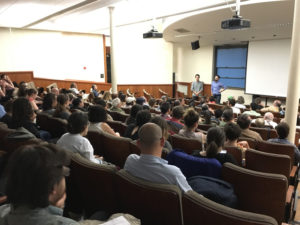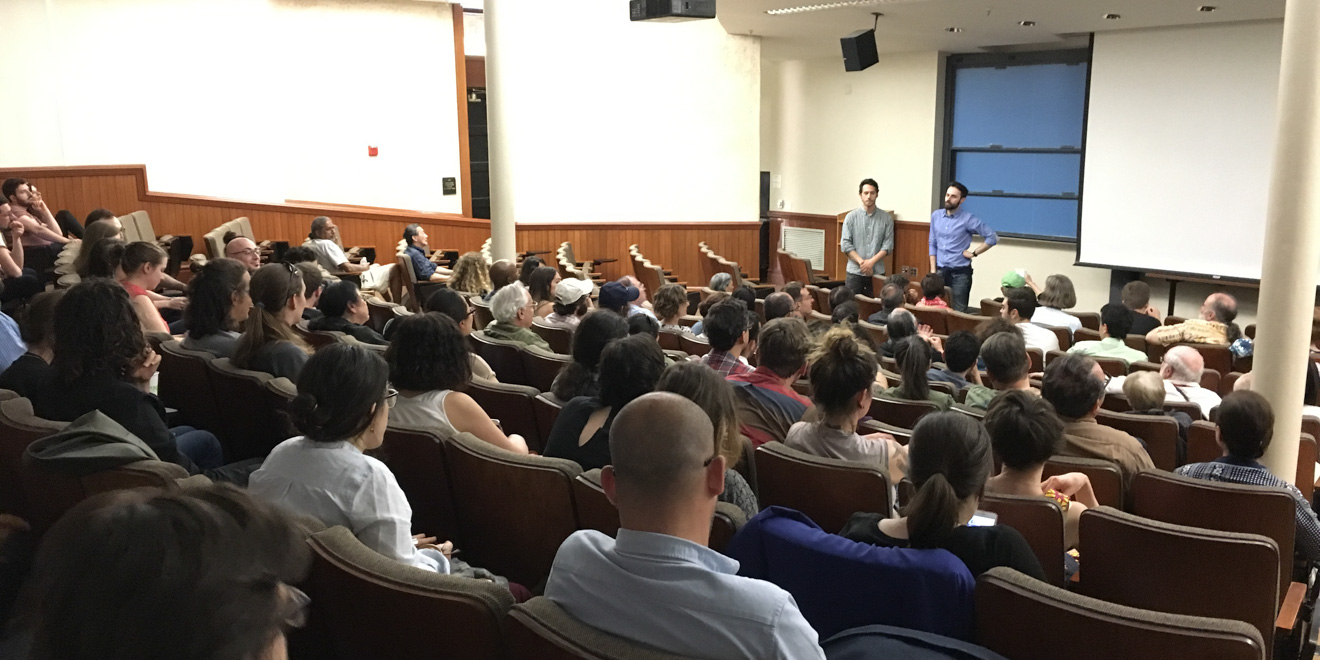
A joint offering from the comparative literature department and the Abbasi Program in Islamic Studies, COMPLIT 102: “Understanding Turkey Through Film” studies the politics and social issues of Middle Eastern countries through the lens of Turkey’s modern cinema industry.
Funded through Stanford Arts, the one-unit course is offered for the first time this year and taught by Burcu Karahan, lecturer in Turkish language and literature. Karahan has formatted the class as a film series, combined with further readings and discussion facilitation in which the directors of the course’s films are frequently featured as guests.
According to Karahan, using different media such as film to develop an understanding of a geographic region can complement more traditional scholarly research.
“[Reading a novel], watching a movie on the same issue and reading a scholarly paper or newspaper article all sometimes come together to make a whole picture,” Karahan said. “They can never be complete on their own, but they can all enhance each other’s point.”
Bianca Quintilla ’17, a student enrolled in the class, believes that film creates a unique opportunity to see the state of Turkey through the “individual experiences” of characters’ lives.
A Turkish student auditing the class, Sarp Celikel ’20, added that the class may help to increase cross-cultural awareness for non-Turkish students.
“I’m sure it helped many non-Turks understand Turkey much better,” Celikel said. “It was funny to see their surprise at things that I had taken for granted.”
While seven students are officially enrolled in COMPLIT 102, close to 50 students regularly attend the film screenings and actively participate in discussions with the directors and scholars that follow each showing. Before each class, assigned readings provide context and background for the issues explored in the films. The perspectives of the films and readings, Celikel said, frequently contrast in interesting ways.
“Films provide an immediate experience, while articles on Turkey usually remain distanced and employ an American rhetoric,” Celikel said.
One particular comedy film, “The Last Schnitzel,” faced censorship in Turkey due to its critical view of executive power and allusions to the current reign of President Recep Tayyip Erdogan.
“The [film] was censored in Turkey,” Karahan said. “[The showing here] was the first time for [the directors] to see any public reaction and for people to ask them about political engagement in movies and censorship.”
In the event that directors cannot be present at the screenings, scholars on Turkish issues from the Bay Area often facilitate the post-screening discussions.
Although this is the inaugural year for the class, Karahan said it will be offered annually in the future. Further, Karahan added, the course will be expanded next year to include even more films and in-depth discussions.
Contact Nic Fort at nfort “at” stanford.edu.
